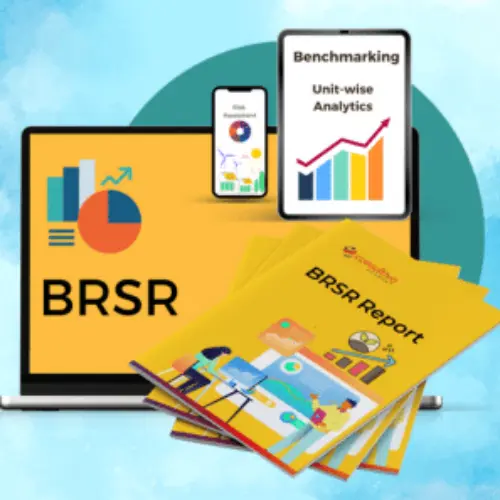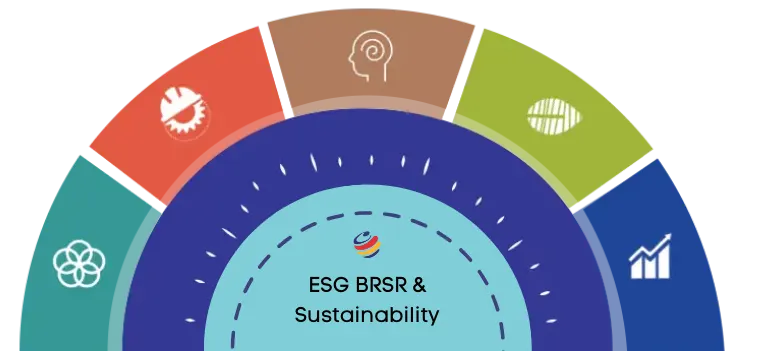In today’s interconnected world, supply chain ethics have become a critical issue for businesses across industries.
With globalization, companies are increasingly relying on complex supply chains that span across different countries and cultures. These supply chains involve numerous stakeholders, from regulators to community, suppliers to distributors, and each one has its own set of ethical considerations.
As a result, companies are facing mounting pressure from consumers, investors, and regulators to ensure their supply chains are ethical and sustainable.
In this context, it’s more important than ever for businesses to understand the importance of supply chain ethics and take proactive steps to ensure their supply chains are in compliance with global standards.
Let’s understand why supply chain ethics matter now more than ever and what businesses can do to ensure their supply chains are ethical and sustainable.
What is Supply Chain Ethics?
Supply chain ethics refers to the set of principles and values that guide the behaviour of businesses and their partners. Few focus areas are:
- Environmental protection
- Working conditions like freedom of employment, safety, health, fair wage
- Human rights issues like non-discrimination, child labour eradication
- Anti-bribery and corruption
It ensures that products and services are produced and delivered in a manner that is consistent with ethical and moral standards.
Supply chain ethics includes ensuring that workers are treated fairly, human rights are respected across the value chain, environmental standards are met, and that suppliers are held accountable for their actions.
In practice, supply chain ethics management involves a range of activities, from conducting due diligence on suppliers to implementing codes of conduct and monitoring compliance.
It also involves engaging with stakeholders, including suppliers, customers, and civil society organisations, ensure that ethical standards are met and that any issues are addressed in a timely and transparent manner.
Supply Ethical issues are not just confined to the course of production, but also involve several other layers of middlemen, traders & retailers till it finally reaches the consumer.
Supply chain doesn’t merely involve moving of raw materials or products in a systematic flow to end in the delivery of the final product.
It involves interaction of human beings at each step giving rise to a number of issues.
Most of the time, we tend to forget these interacting elements and just focus on the final product or outcome.
Do we ever stop & think about the numerous issues involved when the product changes its form going through various hands while moving up the chain?
The Importance of Supply Chain Ethics
Supply chain ethics is important for a number of reasons.
Firstly, it can help businesses to build and maintain a positive reputation. In an era of social media and instant communication, any unethical behaviour by businesses or their partners can quickly become public knowledge, leading to reputation damage and loss of customers.
By adopting ethical supply chain practices, businesses can demonstrate their commitment to social responsibility and build trust with their stakeholders.
Secondly, supply chain ethics can help to mitigate risks associated with unethical practices.
For example, ensuring that suppliers are compliant with environmental regulations, businesses can avoid potential fines and legal action. Similarly, by ensuring that workers are treated fairly, businesses can avoid labor disputes and protests.
Finally, supply chain ethics can help businesses to achieve long-term sustainability.
By adopting ethical practices, businesses can reduce their impact on the environment and contribute to the social and economic development of the communities in which they operate.
The Impact of Unethical Supply Chain Practices
The impact of unethical supply chain practices can be significant and far-reaching. It can range from environmental damage and human rights abuses to reputational damage and financial losses.
For example, the use of child labor in supply chains has been linked to a range of human rights abuses, including physical and psychological harm, and the denial of education and opportunities. Similarly, the use of conflict minerals has been linked to environmental destruction and the financing of armed conflict.
In addition to the ethical concerns, there are also legal and financial risks associated with unethical supply chain practices. For example, businesses may face fines and legal action for non-compliance with environmental and labor regulations. They may also face reputational damage and loss of customers and investors.
Examples of Companies with Strong Supply Chain Ethics
There are many examples of companies that have adopted strong supply chain ethics practices.
For example, a clothing company that is committed to environmental and social responsibility has a code of conduct for suppliers that includes requirements for fair labor practices, environmental standards, and animal welfare. It also operates a program that allows customers to return used clothing for recycling or repair.
Another example is a multinational consumer goods company that is committed to sustainable and ethical sourcing.
They have a Sustainable Living Plan that includes targets for reducing its environmental impact and improving the livelihoods of workers in its supply chain.
It also has a Responsible Sourcing Policy that includes requirements for suppliers to comply with environmental and social standards.
How to Implement Ethical Practices in Your Supply Chain
1. Conducting due diligence on suppliers:
This involves assessing the social, environmental, and ethical risks associated with suppliers and ensuring that they comply with relevant standards and regulations.
2. Implementing codes of conduct:
This involves developing and implementing a set of ethical standards that suppliers must adhere to, including requirements for fair labor practices, environmental standards, and human rights.
3. Monitoring compliance:
This involves monitoring the performance of suppliers against ethical standards and taking corrective action when necessary.
4. Engaging with stakeholders:
This involves engaging with suppliers, customers, and civil society organizations to ensure that ethical standards are met and that any issues are addressed in a timely and transparent manner.
Benefits of Ethical Supply Chain Practices
There are many benefits to adopting ethical supply chain practices. These include:
1. Building and maintaining a positive reputation:
By adopting ethical practices, businesses can demonstrate their commitment to social responsibility and build trust with their stakeholders.
2. Mitigating risks:
By ensuring that suppliers are compliant with ethical and legal standards, businesses can avoid potential fines, legal action, and reputational damage
3. Achieving long-term sustainability:
By adopting ethical practices, businesses can reduce their impact on the environment and contribute to the social and economic development of the communities in which they operate.
A dive down the back end supply chain would take us further to the production of the “raw materials” thus giving rise to a complex web of the supply chain.
In the entire system, there are a number of issues that can be broadly divided into four categories: Business Ethics, Labour Welfare and Human Rights, Health & Safety & Environment.
Besides these, there are relevant national & local legal requirements that one must take into consideration rather than just focusing on the compliance vs the non-compliance.
One must note that the lapse on any of these forms a major risk or threat to the organisation & thus directly affecting its sustainability.
The degree of problems varies from country to country. Developing countries face the challenges of Child labour, adolescent workers, basic minimum wage, overtime & above all health & safety of the workers.
Environment impact & the product footprint is also a major cause of concern starting from pollution – air, water & soil, ecological aspects, biodiversity, flora & fauna, greenhouse gas emission, energy consumption, water consumption, waste management along with the legal compliances wherever applicable.
Before declaring the product ethically sourced & ethically produced, one needs to think whether the above mentioned issues are taken care of in real sense or is it looked through a rose-tinted glass.
With the world shrinking day by day in terms of distance & communication, one must admit that business practices cannot be continued in its conventional or orthodox form.
One has to introspect & think of ways to bring sustainability in business by taking care of the ethical issues in its supply chain rather than making an excuse & finding an easier & shorter escape route.
It might give relief for a short period but unfortunately, the road would end soon & the fall would eventually happen !!
Challenges in Implementing Ethical Supply Chain Practices
There are many benefits to adopting ethical supply chain practices. These include:
1. Lack of transparency:
Supply chains can be complex and opaque, making it difficult to identify ethical issues and monitor compliance.
2. Cost:
Implementing ethical supply chain practices can be costly, particularly for small and medium-sized businesses.
3. Cultural differences:
Different cultures and legal systems may have different ethical standards, making it difficult to develop a set of universal ethical standards.
4. Lack of resources:
Some businesses may lack the resources and expertise to implement ethical supply chain practices.
Future Trends in Supply Chain Ethics
The future of supply chain ethics is likely to be shaped by a range of factors, including advances in technology, changes in consumer behavior, and evolving regulatory frameworks.
One trend that is likely to become increasingly important is the use of blockchain technology to increase transparency and accountability in supply chains. Blockchain technology can be used to create a secure and transparent record of transactions, making it easier to track products and ensure compliance with ethical and legal standards.
Another trend is the growing importance of social, environmental and governance (ESG) issues in consumer behavior. As consumers become more aware of the impact of their purchasing decisions on the environment and society, they are likely to demand greater transparency, disclosures and accountability from businesses.
Related Solutions
- Business and Human Rights Due Diligence
- Training
In conclusion,
In conclusion, supply chain ethics is a critical issue for businesses across industries. With the rise of globalization, companies are increasingly relying on complex supply chains that involve numerous stakeholders and ethical considerations.
By adopting ethical supply chain practices, businesses can build and maintain a positive reputation, mitigate risks, and achieve long-term sustainability.
However, implementing ethical supply chain practices can be challenging, and businesses may face a range of cultural, financial, and regulatory barriers.
Despite these challenges, the future of supply chain ethics is likely to be shaped by advances in technology, changes in consumer behavior, and evolving regulatory frameworks.
Share this post
Category: Blog
Tags: Social & Sustainability
Related insights
View more in Impact Stories | Blogs | Knowledge Bank | News and Events











